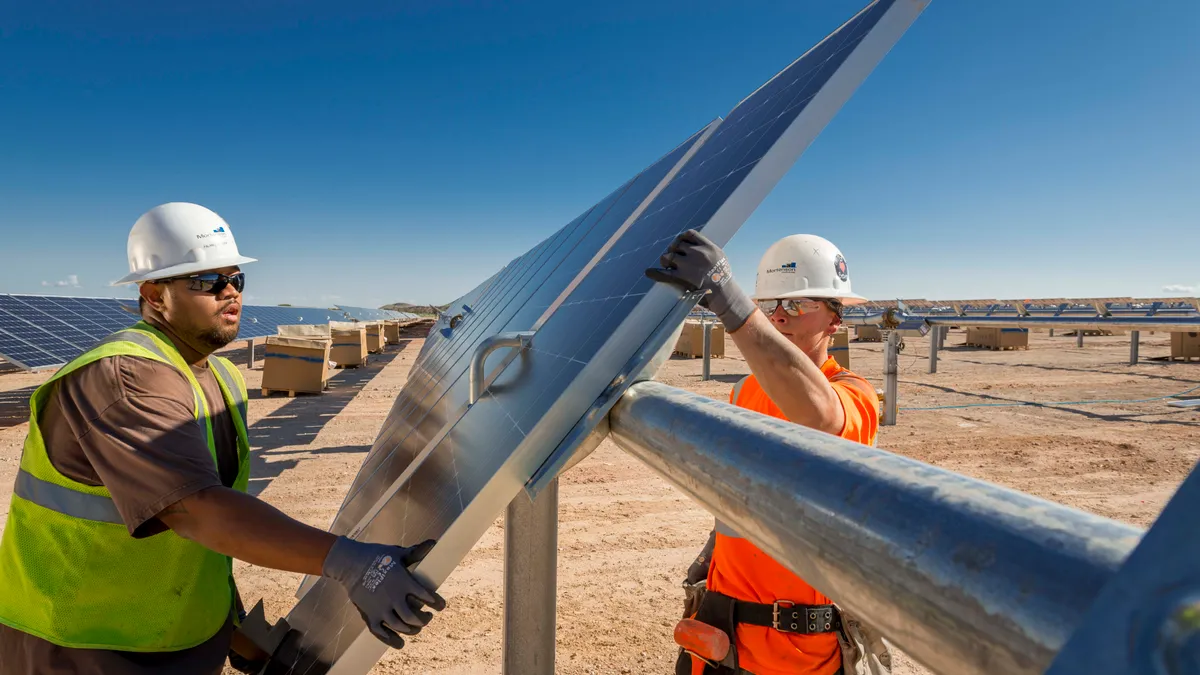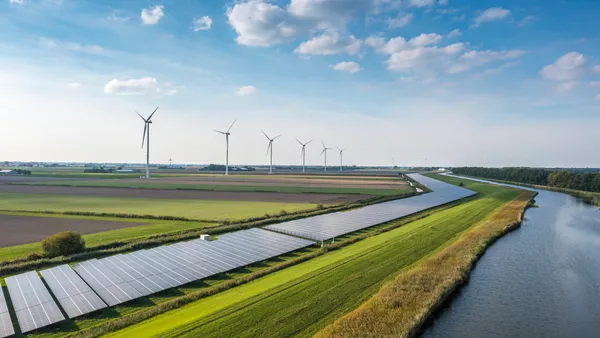Dive Brief:
- A bipartisan group of 11 Congressional lawmakers have petitioned President Trump for "strong and effective" trade remedies for imported solar equipment under Section 201 of the 1974 Trade Act. A pair of United States-based manufacturers, Suniva and SolarWorld, sought import relief earlier this year.
- In two letters, lawmakers said President Donald Trump's decision would help domestic manufacturers make capital investments in solar equipment and research and development, as the domestic solar panel production industry is restarted.
- In October, the U.S. International Trade Commission unanimously found cause for severe injury and subsequently issued three remedy recommendations in the case, which included tariffs as high as 35%, capped imports and an import licensing fee. Trump is expected to make a final decision at the end of January.
Dive Insight:
As the clock winds down on President Trump's trade decision deadline, Suniva and SolarWorld have connected with lawmakers to make their case. The 11 signatories include five lawmakers from Oregon, where SolarWorld Americas is based.
“All forecasts indicate that U.S. demand for solar energy will continue to grow – the question is whether American-made products will help supply that growing demand,” the two letters say, signed by a trio of Senators and eight Representatives. “A strong and effective remedy will ensure that the U.S. CSPV solar cell and module manufacturing sector can grow and would restore thousands of U.S. manufacturing jobs that have been lost due to the injury caused by imports while preserving the health of the entire U.S. solar industry.”
In October, the International Trade Commission issued three separate remedies that ranged from tariffs as high as 35%, to quotas, capped imports or an import licensing fee. Suniva and SolarWorld have called those proposed duties too soft and pushed for their own proposals.
Both companies have requested a declining tariff that begins at $0.25/watt for solar cells and a floor price of $0.74/watt for solar modules. For solar modules, they want tariffs that start at $0.32/watt and fall to $0.29/watt in four years.
Suniva’s proposal also includes a revised floor price of $0.74/watt for solar modules that drops to $0.64/watt in four years. In addition to all that, SolarWorld has requested quotas for modules and cells. However, President Trump could impose remedies of his own design, complicating efforts to predict market repercussions.
SolarWorld and Suniva petitioned the ITC for import relief in April, under a Section 201 investigation of the 1974 Trade Act. The commission subsequently suggested that each the remedies remain in place for four years — the full timeline under Section 201, although there is an option to extend them an additional four years.
The signatures from the House include Rep. Michael D. Bishop (MI-R), Rep. Suzanne Bonamici (OR-D), Rep. Daniel Kildee (MI-D), Rep. Steve Pearce (NM-R), Rep. Peter DeFazio (OR-R), Rep. Kenny Marchant (TX-R), Rep. Earl Blumenaur (OR-D), and Rep. Marcy Kaptur (OH-D). The signatories from the Senate include Sen. Ron Wyden (OR-D), Sen. Jeff Merkley (OR-D), and Sen. Sherrod Brown (OH-D).















